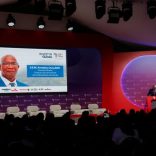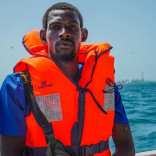Guinea's prime minister announces elections in December 2025
African Union avoids discussion on International Criminal Court

The summit of heads of state and government of the African Union (AU), held in Kigali, the capital of Rwanda, did not discuss the question on whether or not African nations should withdraw from the International Criminal Court (ICC).
Speaking to reporters on Monday after the end of the summit, Mozambican President Filipe Nyusi explained that “we did not touch on this issue. We looked at the African Court on Human and People’s Rights. Who knows, our African Court on Human and People’s Rights could one day become the International Criminal Court for us”.
President Nyusi added that the summit had elected two judges to the African Court on Human and People’s Rights, which is based in Arusha in Tanzania. On Saturday, Mozambican Foreign Minister Oldemiro Baloi explained to journalists that only two judges were elected for the four positions available as all the candidates were male and there is a firm rule in favour of gender balance.
This is in line with the theme of the summit which was “2016: African Year of Human Rights, with Particular Focus on the Rights of Women”.
The Mozambican delegation attended the summit with the objective of focussing attention on promoting conflict resolution, empowering women, and deepening good governance and democracy. President Nyusi told reporters that “revitalizing the process of continental integration, further consolidating friendship and promoting more partnerships were also the objectives of our participation”.
Although the question of the ICC was not raised during the summit, it was a hot topic in the corridors.
Much of the discussion focussed on whether the ICC is biased against African leaders.
Last year, the African Union requested that its advisory body, the Economic Social and Cultural Council (ECOSOCC), produce a report with recommendations for a joint position on the ICC.
Speaking to reporters, ECOSOCC’s spokesperson, Joseph Chilegi, argued that the ICC has failed to adhere to the international justice system. He stated, “Europeans would like to impose their solutions on Africa, such as the ICC. But, it is clear that the ICC is part of the problem with the international justice system. It is a problem rather than a solution”.
Chilegi pointed out that the European Union provides over 70 per cent of the ICC’s budget, in violation of the Rome Statute, which says that no member state can pay more than 22 per cent of the budget”.
He stated, “as we know, he who pays the piper calls the tune. That is why no soldier or politician of the European Union, the United States or NATO, has ever appeared before the Court. That’s why allegations of war crimes and genocide in Iraq and Afghanistan go untouched”.
Over 120 states have ratified the Rome Statute which is the treaty that established the ICC. A further 31 countries have signed the Statute but have not yet ratified it. However, major powers such as the United States, Russia, China, and India are not members.
In December 2000, Mozambique signed the Rome Statute. However, it has not yet ratified its accession to the ICC because some legal provisions covered by the Statute clash with the country’s constitution and legal system.












Leave a Reply
Be the First to Comment!
You must be logged in to post a comment.
You must be logged in to post a comment.